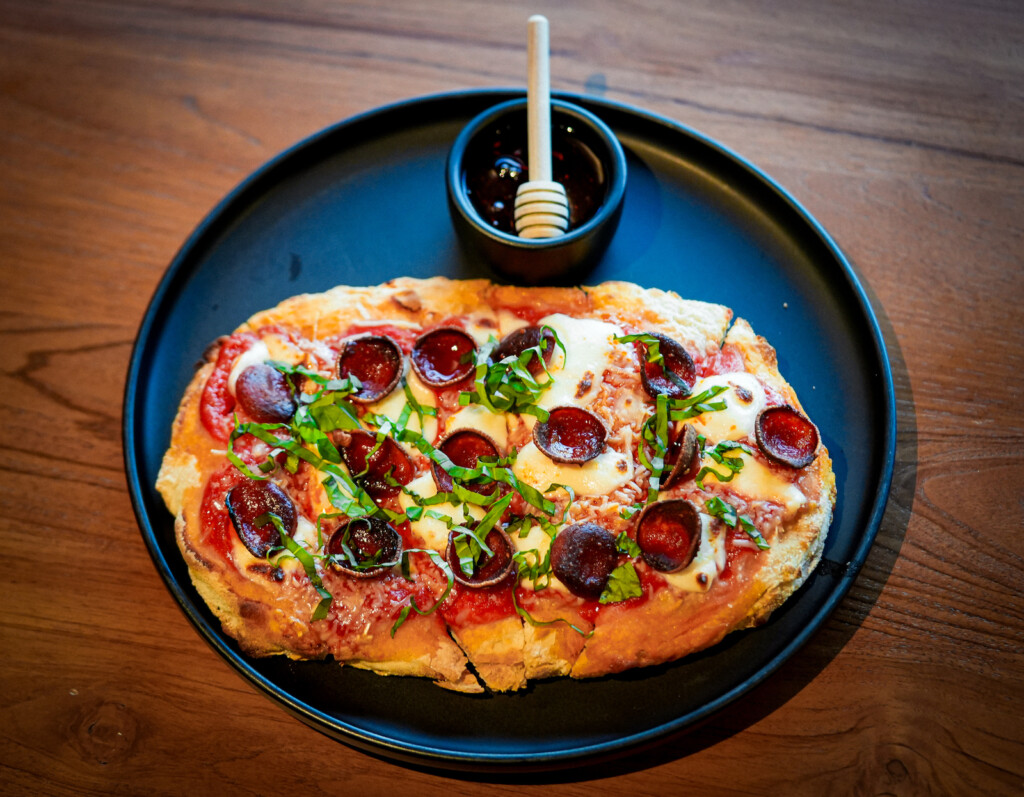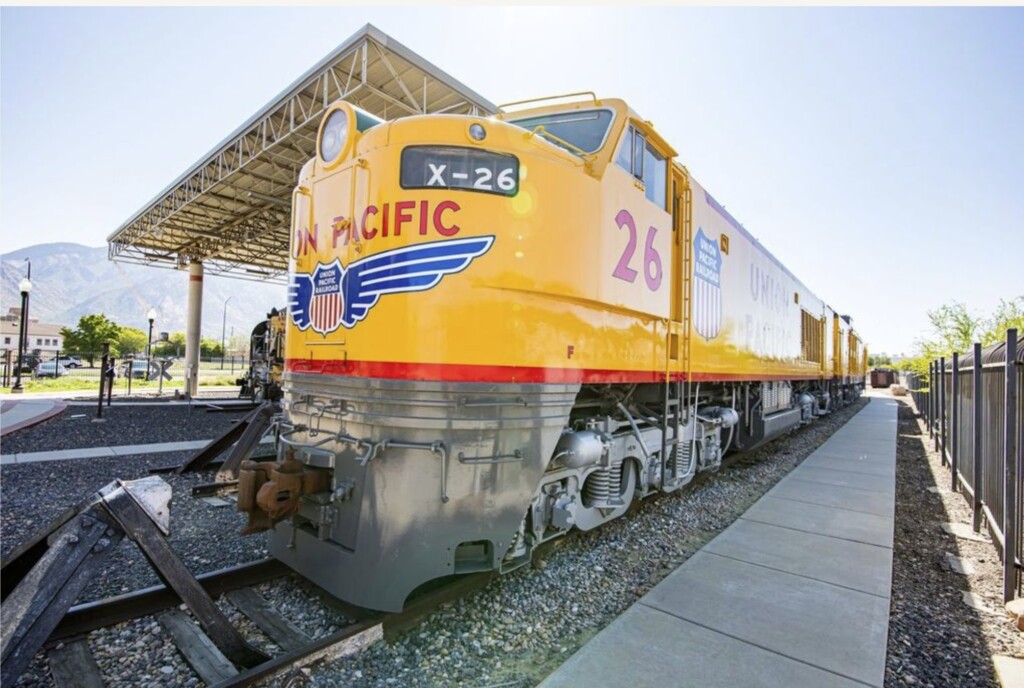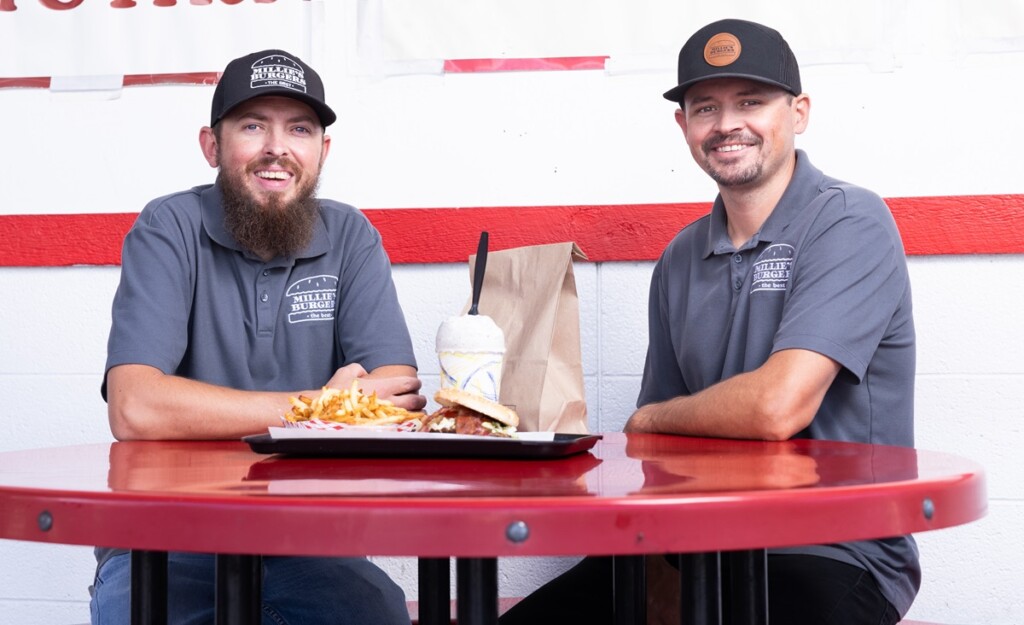Mom and Pop Stories in a Big Box World
Da-Ding! The sound of a shopkeeper’s bell still rings out when the door opens at some tiny Utah grocery stores. It’s not just for nostalgia’s sake; these stores have been around for up to a century. Keeping a small grocery store going in the days of Big Box behemoths is challenging, but these owners have found ways to adapt to the times.
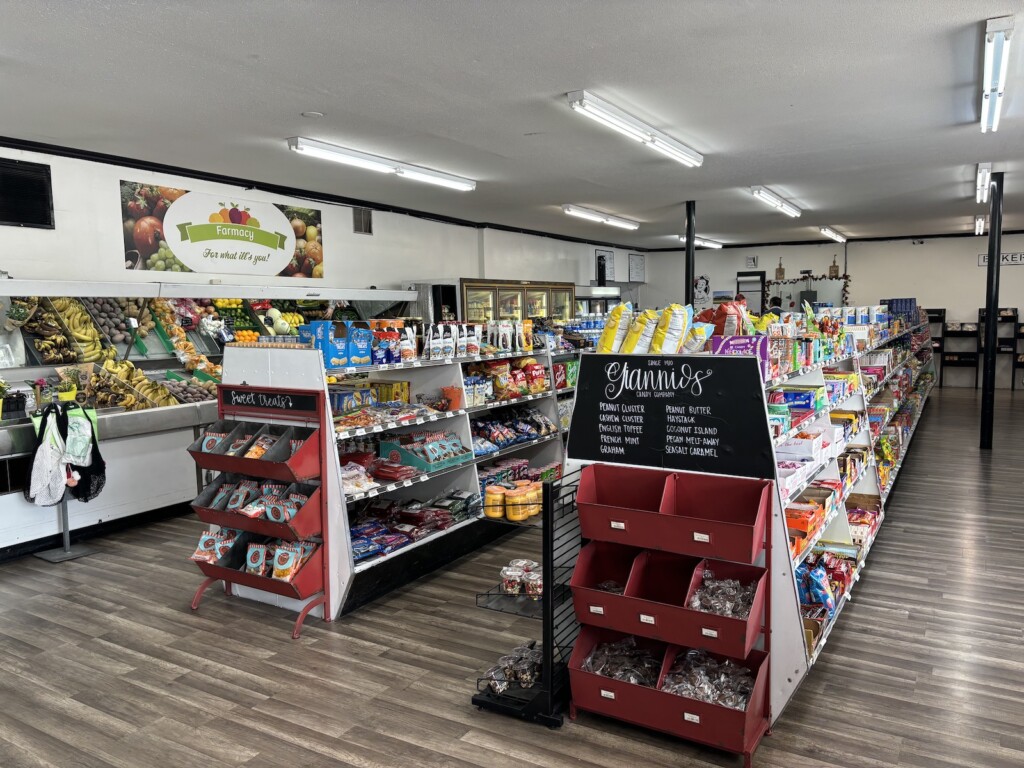
R&A MARKET AND DELI
Helper, Utah
The “R” stands for Richard Columbo, a man who could rightly be called Helper’s Butcher Emeritus. People from southeastern Utah remember coming into the little grocery store opened by Richard and his Uncle Armond in 1970, which is built on a previous meat locker and grocery that opened in 1946.
Owned by Italian proprietors in Helper, a county settled by a variety of European immigrants, the market offered items that were part of its patrons’ daily diets. Richard prepared Italian and Greek sausages, kielbasa, and breaded veal, sourcing spicy capicola, sopressata, and prosciutto from the city. He hand-cut steaks and roasts and made sure to have smelts and mortadella in stock for holiday dinners.
When Richard was ready to retire, he called up his cousin, Cindy Edwards Curry, and asked her to keep the grocery store going.
“I don’t miss the work, but I’ve sure missed the people,” Richard says.
Curry sees the grocery business as a deeply-rooted part of her family tradition. She’s got a staff of four running the market, and the butcher counter continues to be the star of the show, with many of Richard’s recipes still in use. The butcher also smokes meat several days a week.
R&A Market is a full-service grocery store with a produce section and canned goods. Italian favorites like lupini, spaghetti sauce, and bucatini are still on the shelves. The bakery goods are also evocative of the past. They remind Curry of days sitting around the kitchen table with family, drinking coffee and enjoying traditional Italian cookies.
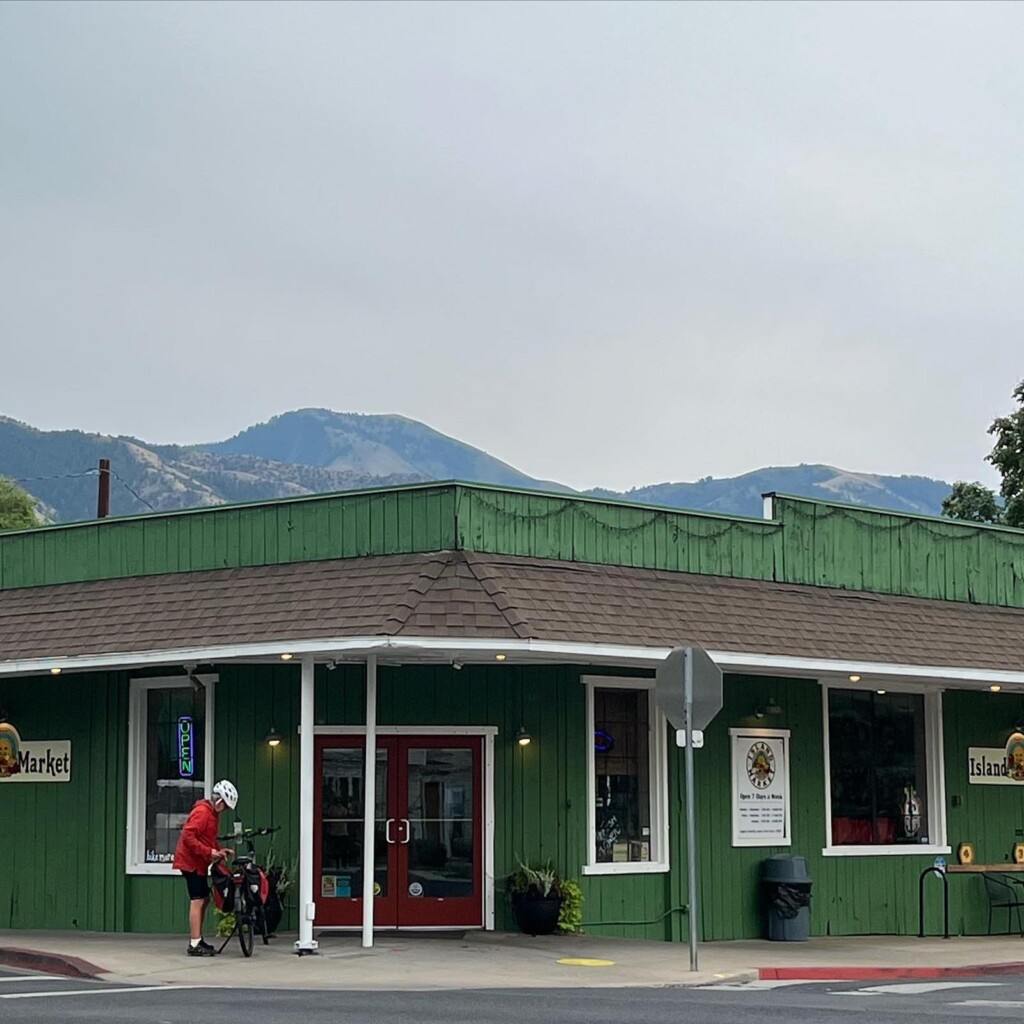
ISLAND MARKET
Logan, Utah
Island Market is just like an island. At 400 East Center Street in Logan, it’s right in the middle of everything. People on their way to Logan’s university, hospital, temple, and surrounding neighborhoods cross paths with this community hub every day. That’s what keeps it going.
“I can’t tell you how many dogs we find the owners for,” says Tina Farnady, Product Manager. Lost dogs seem to know that Island Market is the local hangout, and they drift to the corner of 400 East and Center Street, gathering up the scent of snacks, staples, and specialty items as they roam.
A grocery has stood on this spot since 1923, and Island Market is still a fully stocked grocery store serving an extremely economically diverse clientele.
“Our products go from K-Kraft to c-craft,” Farnady says, meaning she stocks everything from mass-market canned spray cheese to locally produced raw milk gouda. Even tour groups from Central Milling are directed to Island Market to buy the mill’s locally-produced pizza flour. While there, they might pick up a sandwich by baker Matt Strong, or a Le Croissant treat.
Island Market was known for generations for its penny candy, until Covid made unwrapped candy seem dangerous.
“When penny candy ended, it was a big sense of loss for the community,” Farnaday says. “People were very nostalgic about it.”
Those same customers are nostalgic about Island Market as a whole, and the Island vibe is what keeps them coming back.
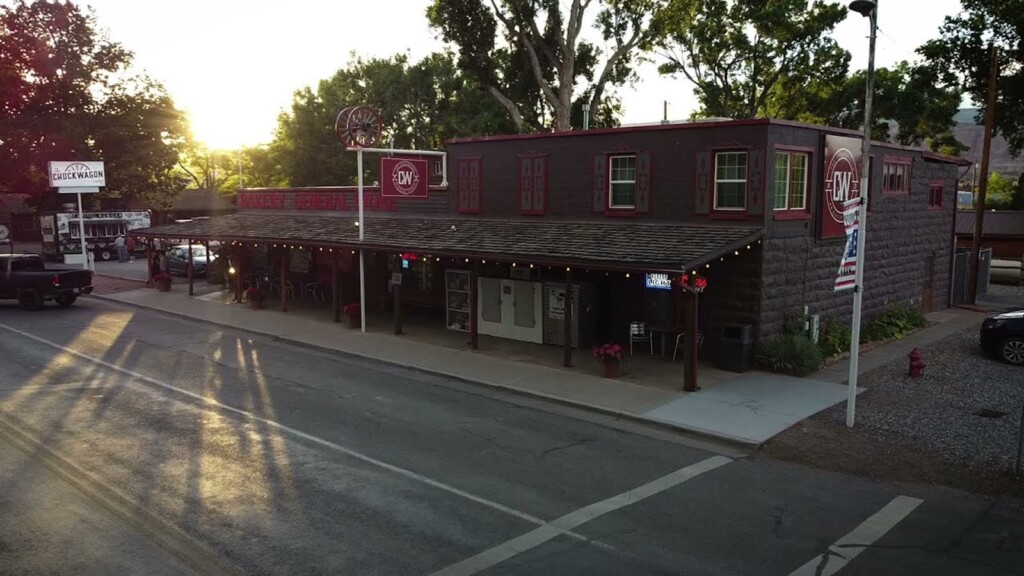
THE CHUCKWAGON
Torrey, Utah
The Chuckwagon in Torrey is known for provisioning tourists and saving locals a trip to town, and it’s always been that way. The store started its life in 1954 as Wayne Wonderland Mercantile and sold “everything from horseshoes to fabric for dressmaking.”
When LaVoy Tolbert bought the store in 1964, the Merc was stymied. Torrey was running the untreated red, sandy water of Sand Creek through town pipes until the water got so thick that sometimes you couldn’t flush the toilets. Tolbert installed a filter and cistern on the property and got the business flowing again. He operated a rock shop and six motel rooms on the property, but a full-service store was destined to come back.
When Randy Austin took a wrong turn on his way to Lake Powell in 1974, he wandered into the rock shop and walked out owning it. He brought back the mercantile, and locals no longer had to drive the eight miles to Loa or 65 miles to Richfield for store bought goods. The Austins eventually added a motel and deli.
Sheri Clark, Randy Austin’s daughter, still runs the Chuckwagon with family members, and the shoppers are still a mix of tourists and locals.
“We have a little bit of everything,” Clark says, and she means it.
Tourists can provision a day trip into Capitol Reef National Park from a wide array of dry goods, snacks, and deli items. There’s also a surprising selection in the beer cooler. Locals drop in for produce, local meats, or that one item they need to complete a dinner recipe. Tourists and locals alike can be found visiting on the covered porch with a cup of coffee like Randy Austin was known for doing.
Meanwhile, the Chuckwagon is still a mercantile. They may no longer carry horseshoes and fabric, but they do stock T-shirts, beach towels, sun hats, coolers, first aid, and drugstore items.
In the evenings after the deli closes, Chuckwagon’s parking lot hosts the now-famous Capitol Burger food truck.
“It’s a nice little partnership,” Clark says. “We go hand in hand.”
Feature Image: Tommy King, butcher at R&A Market and Deli in Helper, Utah. Photo by Bianca Dumas.



